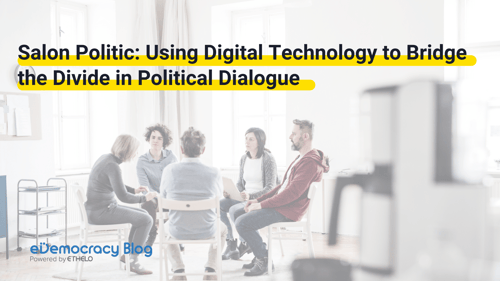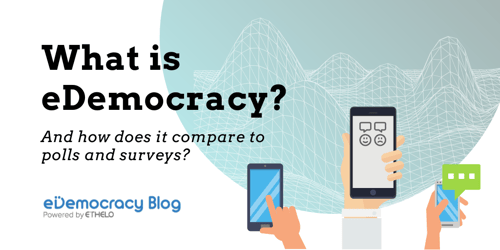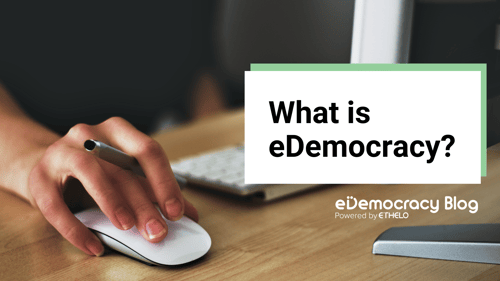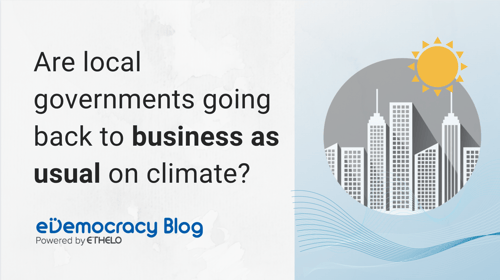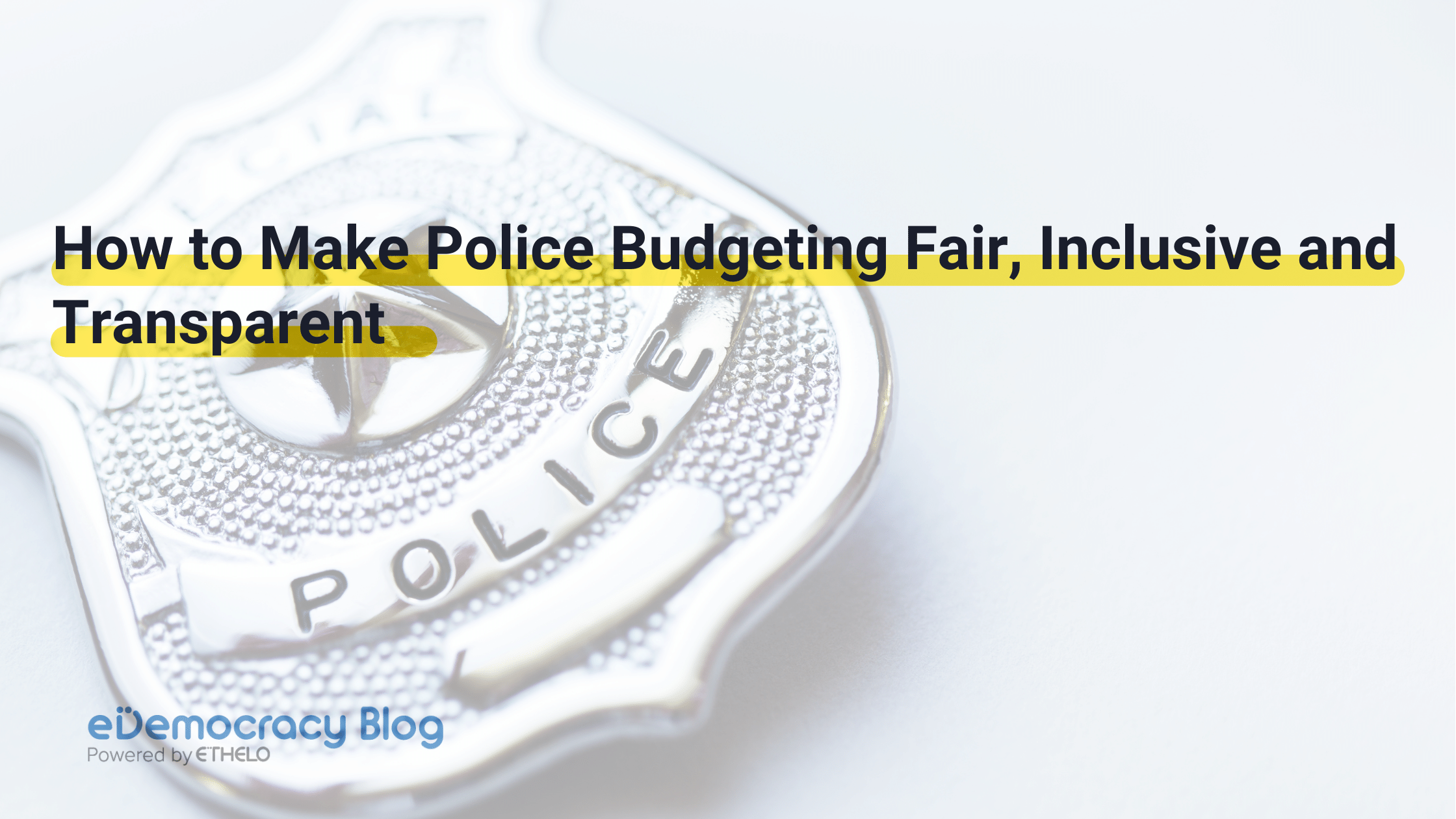
Across North America, municipal leaders are grappling with how to turn the energy of protesters in the streets calling for police reform into tangible policy changes that will meet the needs of a broad segment of the community—all while the COVID-19 pandemic continues to spread.
Public participation has never been more critical, but the traditional rulebook for public engagement is out the window. Town halls and other in-person consultations are not safe and traditional surveys take too long to collect data and measure results.
eDemocracy offers a solution. It harnesses the power of technology to bring a broad cross-section of the public into decision-making processes and creates representative and fair outcomes. In this article, we share how you can use eDemocracy to enhance public participation in police budgeting.
Bringing citizens into government
Released in 2020 by the Organisation for Economic Co-operation & Development (OCED), the report on Innovative Citizen Participation and New Democratic Institutions outlines several key reasons why public participation is essential in political decision-making. The report states that public participation:
- Helps policymakers to better understand policy priorities and the values and reasons behind them, to identify where consensus is and is not feasible, and to overcome political gridlock
- Increases citizens’ sense of political efficacy, or the belief that one can understand and influence political affairs by not treating them as objects of legislation and administration
- Strengthens integrity and prevents corruption by ensuring that groups and individuals with money and power cannot have undue influence on public decisions.
Public engagement processes create the spaces for learning, deliberation, and the development of informed recommendations, which are of greater use to policy and decision-makers.
eDemocracy moves this activity online, which meets people where they are and allows the power of algorithms to turn participant input into solutions that are optimized for fairness and consensus. It even incorporates elements of game theory to encourage fairness and collaboration. As Stanford University political theorist Josiah Ober states:
‘… over time, people can develop habits of ‘working together to solve problems against a background of fair rules,’ resulting in a robustly democratic society. This includes habits that allow for dissent and encourage working together to protect vulnerable individuals, and that recognize that short-term personal sacrifice can lead in the long term to common goods.”
More than 100 municipalities have used Ethelo, an eDemocracy platform, to collect public input on budgets and educate them about the tradeoffs associated with municipal budgeting.
eDemocracy and police budgeting
Recent protests have put a spotlight on police conduct but also on police funding. Many cities and municipalities spend a significant portion of their budget on police services, leaving some to wonder what their communities would look like if those funds were reallocated to education, human services, or other areas.
When it comes to sensitive issues like policing, citizens need a way to make their voices heard, and elected officials need to know that they have public support for decisions they make. eDemocracy helps make both of these things happen.
Citizens can share their preferences for how budgets are allocated within a community and interact with other people in the community in the process. As they enter information, the Ethelo algorithm determines which proposals and solutions have the highest level of support—a process optimized for fairness in the tradition of political philosopher John Rawls.
This approach only works if you hear from a diverse cross-section of the community. Online engagements are great for bringing young people and busy professionals into the deliberation process but might not work as well for other groups.
A mix of online and offline strategies generally yields the most inclusive results. For example, you can set up stations for people to enter information online in libraries or other public spaces (health and public safety regulations permitting) or distribute paper forms and enter them manually into the Ethelo platform.
The consultation results should be shared widely with the community, particularly when it comes to sensitive issues like policing. This is one of many steps on the path toward strengthening trust in the police, something that’s been declining across Canada since protests began in late May 2020.
Talking eDemocracy beyond police
Municipalities can also use the eDemocracy approach to budgeting to address other community issues and help with both short and long-term planning.
Many of the same polarization issues around policing also come into play around climate change—some people want large-scale reforms while others prefer to maintain the status quo. Municipalities can use the same online engagement tools to create a carbon budget and build consensus about how a city or town—and the people within it—can work together to meet carbon reduction goals.
The eDemocracy approach can also help municipalities make the most of resources that are being stretched increasingly thin due to COVID-19. Not only are in-person meetings a health risk in the current climate, but they also require valuable staff time and other resources to plan, promote, and execute.
Moving public engagement online lets staff spend their time helping residents who need urgent help and access to services. Data from budget consultations are readily available in an easy-to-use format whenever staff want to access it.
No matter how much money is on the table, people still have an important role in determining how it’s spent, which will lead to greater buy-in in the long term.
Moving to an online approach is a win-win from multiple angles. There’s never been a better time for governments to connect with their residents and establish new relationships. These relationships can thrive long after the pandemic ends and the work of police reform moves out of the streets and into the offices of cities and towns across Canada.
To see an example of how a community can use Ethelo to create a budget for police that creates space for other alternative approaches to safety and crime reduction, visit our Police Budgeting demo


